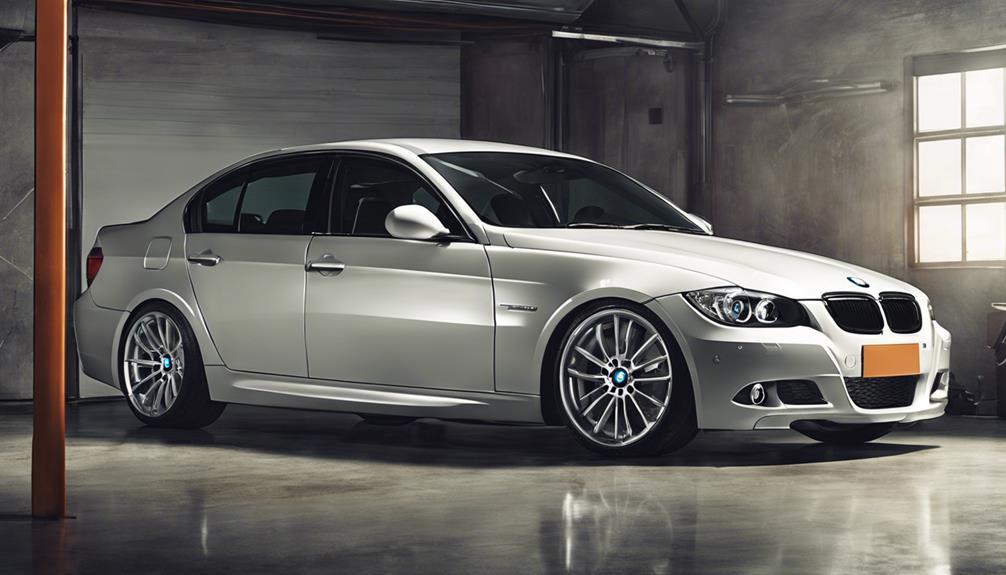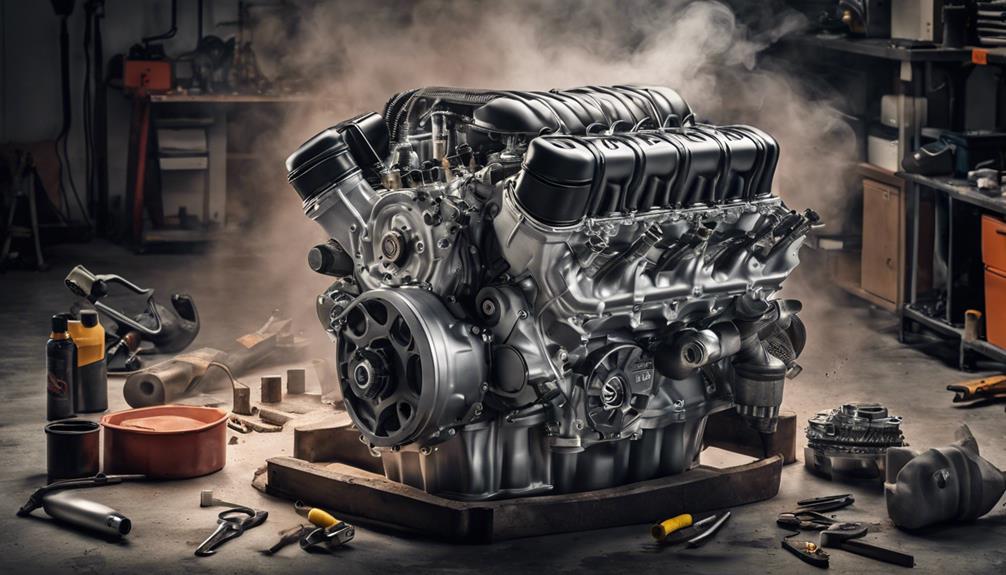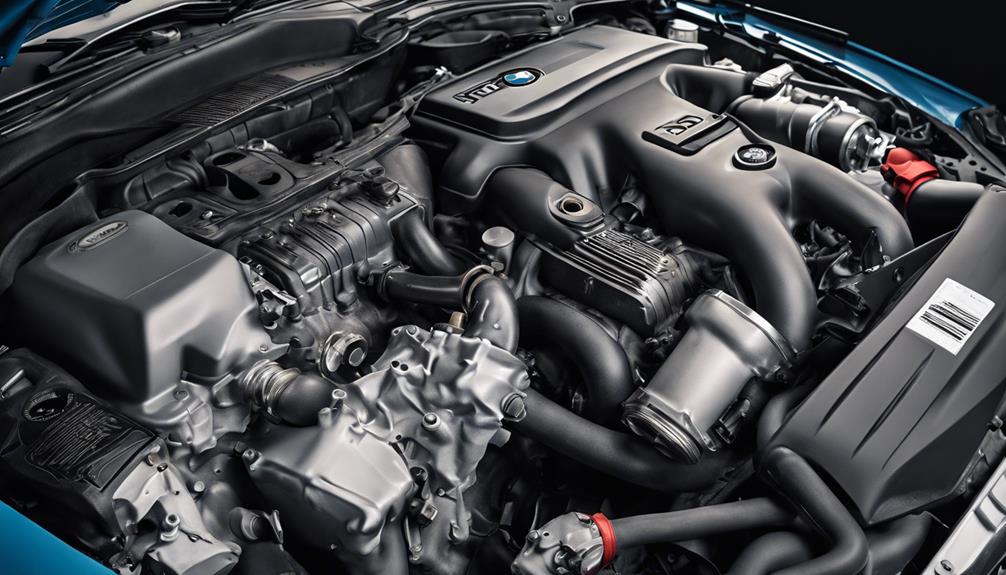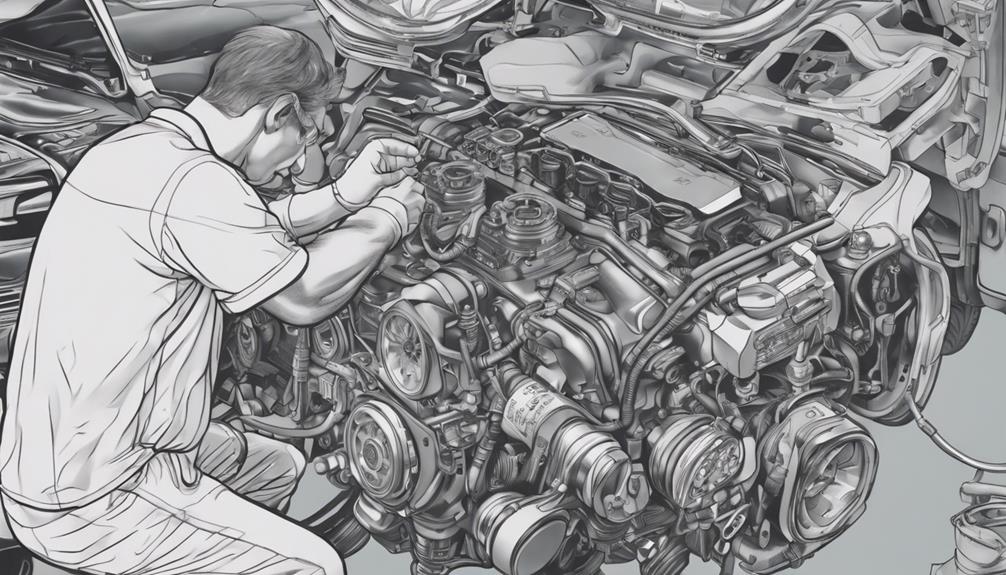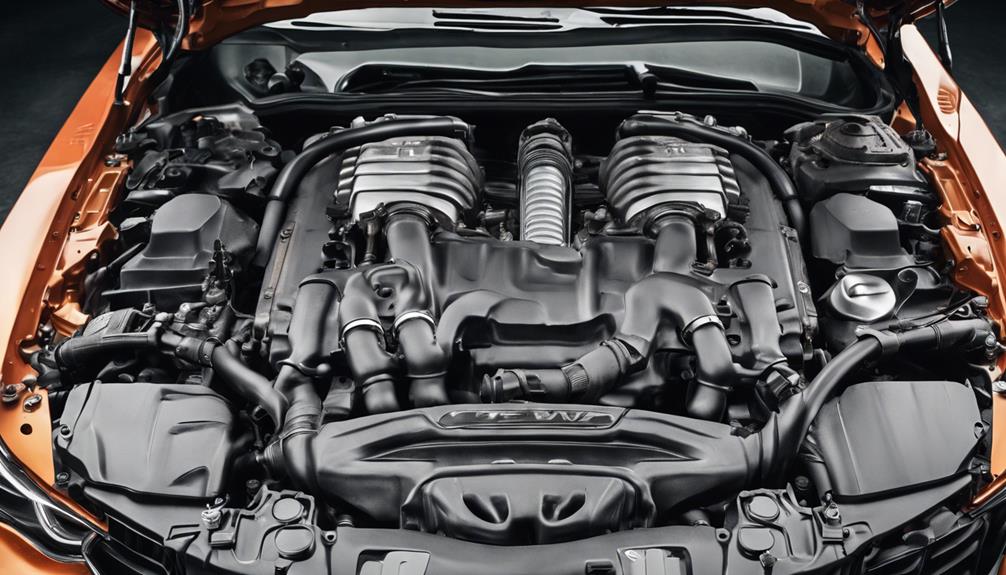When considering the most reliable year for the E90 model, the 2008 E90 emerges as a practical choice recognized for its sturdy build quality, minimal mechanical issues, and lower maintenance costs. This makes it a dependable option in the luxury vehicle market, showcasing a reputable and reliable performance history. You'll find detailed insights on other model years for the E90, each offering different strengths and considerations for reliability and ownership satisfaction.
Key Takeaways
- 2008 E90 model stands out for reliability with the renowned N52 engine and sturdy build quality.
- 2006 E90 model is highly reliable with the acclaimed N52 engine, consistent performance, and low maintenance costs.
- 2007 E90 model offers dependable driving dynamics, precise steering, and an engaging driving experience.
- 2009 E90 model boasts relatively lower maintenance costs, around $1,000 annually, for routine maintenance and occasional repairs.
- 2013 E90 model is recognized as one of the most reliable vehicles with a dependable N52 engine and high satisfaction in durability and performance.
Reliability of the 2006 E90 Model
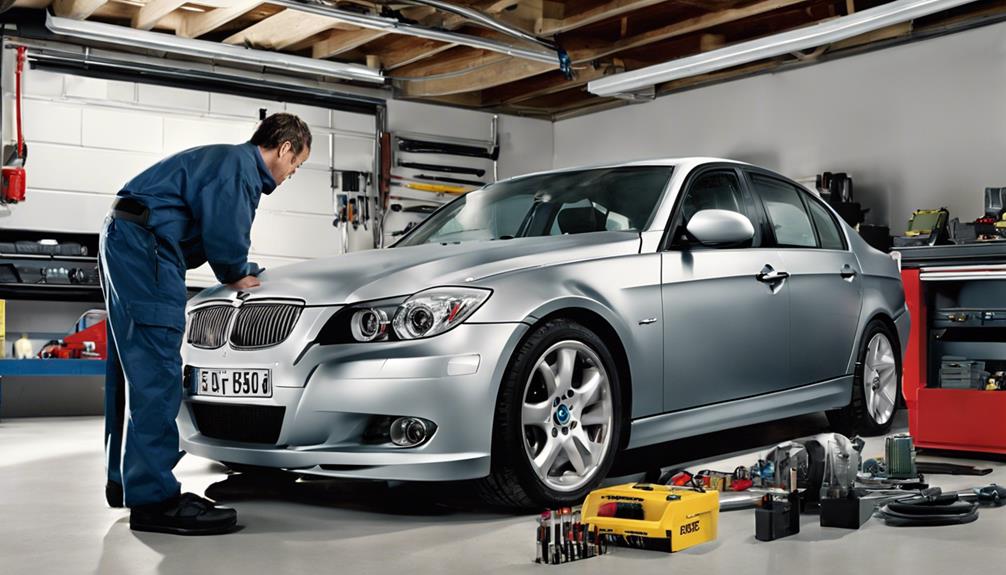
The 2006 E90 model's reliability stems from the acclaimed N52 engine, known for its durability and minimal issues compared to later turbocharged engines. This engine, featured in the 325i and 328i variants of the 2006 E90 model, has garnered high satisfaction among owners due to its consistent performance and longevity.
Drivers appreciate the N52 engine for its ability to deliver power smoothly while maintaining a level of reliability that's unmatched by some of the newer turbocharged options. The 2006 E90 model stands out for its low maintenance costs and reputation for long-term durability, making it a top choice for BMW enthusiasts seeking a dependable vehicle.
With proper care and attention, the N52 engine in the 2006 E90 model guarantees a reliable and enjoyable driving experience for years to come, solidifying its position as a fan-favorite in the world of BMW vehicles.
Performance of the 2007 E90 Model
In the realm of automotive performance, the 2007 E90 Model showcases a fusion of power and agility that captivates drivers seeking a dynamic driving experience. The inclusion of the renowned N52 engine, a 3.0-liter inline-six powerhouse, in the 2007 E90 model offers a compelling blend of reliability and performance.
- Potent Engine: The N52 engine produces 255 horsepower and 220 lb-ft of torque, providing swift acceleration and an exhilarating driving experience.
- Driving Dynamics: The 2007 E90 excels in balanced handling and precise steering, enhancing the overall driving dynamics and making it a top choice for driving enthusiasts.
- Dependability: Known for its sturdy build quality and established track record for reliability, the 2007 E90 model guarantees a dependable and engaging driving experience that drivers can rely on for the long haul.
Durability of the 2008 E90 Model
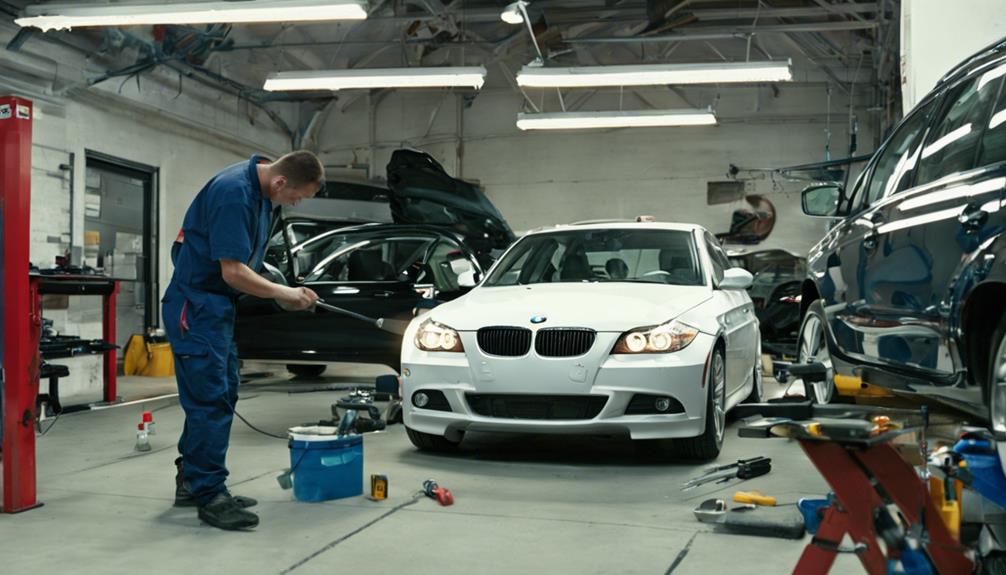
The durability of the 2008 E90 model is a standout feature among owners, with its N52 engine being renowned for its reliability and long-term performance.
This model is often praised for its sturdy build and lower maintenance costs, making it a practical choice for those seeking a dependable vehicle.
The 2008 E90's reputation for resilience and minimal mechanical issues solidifies its position as a reliable option in the market.
2008 E90 Reliability
Renowned for its proven durability, the 2008 E90 model with the N52 engine exemplifies exceptional reliability among its peers. When considering the 2008 E90's reliability, several key points stand out:
- Owners of the 2008 E90 have reported fewer major issues, indicating a high level of dependability.
- The N52 engine in the 2008 E90 is highly regarded for its long-lasting performance and minimal maintenance needs.
- Overall satisfaction with the 2008 E90's powerful driving experience further solidifies its reputation as a reliable choice in the luxury vehicle market.
The 2008 E90's impressive track record for reliability makes it a compelling option for those seeking a dependable and exhilarating driving experience.
Maintenance Cost Analysis
With its reputation for longevity and reliability, the 2008 E90 model's maintenance costs reflect its cost-effective nature and durable N52 engine. Routine maintenance, such as oil changes, spark plug replacements, and occasional gasket replacements, contributes to the overall low maintenance costs of this model.
The N52 engine in the 2008 E90 is known for its reliability, steering clear of major issues like high-pressure fuel pump failures. Due to these factors, the 2008 E90 is considered a cost-effective option for those looking for a reliable vehicle that doesn't break the bank regarding upkeep.
This model's ability to maintain a balance between reliability and affordable maintenance makes it a practical choice for many drivers seeking a dependable vehicle.
Maintenance Costs of the 2009 E90 Model
For owners of the 2009 E90 model, understanding the maintenance costs is essential for budgeting and guaranteeing peak performance. When it comes to the 2009 E90, maintenance typically includes regular oil changes, filter replacements, and fluid checks.
Here's what you need to know about the maintenance costs of the 2009 E90 model:
- Cost-Effective Option: The 2009 E90 model is known for its relatively lower maintenance costs compared to older versions, making it a cost-effective choice for budget-conscious owners.
- Routine Maintenance: Owners can expect to spend around $1,000 annually on maintenance, covering tasks like oil changes, filter replacements, and fluid checks to keep the vehicle running smoothly.
- Occasional Repairs: While routine maintenance is the norm, occasional repairs such as brake pad replacements or sensor adjustments may be necessary to address specific issues and ensure the car's longevity.
Engine Issues in the 2010 E90 Model
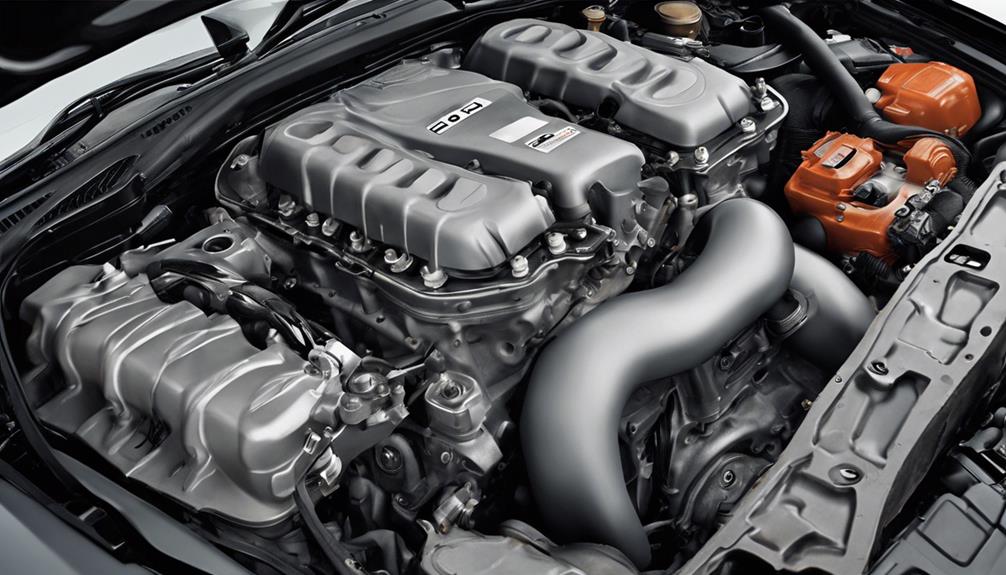
Engine issues in the 2010 E90 model, particularly related to the N52 engine, are notable for their impact on maintenance and performance. The N52 engine in the 2010 E90 is generally reliable and durable; however, some common issues have been reported.
One prevalent problem is oil leaks, often stemming from the valve cover gasket. If not addressed promptly, oil filter gasket failure in the 2010 E90 can escalate, potentially causing damage to the serpentine belt and the engine itself.
Despite its advantages over direct fuel injection engines with regard to carbon build-up, owners of the 2010 E90 with the N52 engine may face challenges with components like the VANOS system and Valvetronic system as the vehicle ages.
It's essential for owners to stay vigilant about regular maintenance and address these engine issues promptly to guarantee the continued reliability and performance of their 2010 E90.
Ownership Experience With the 2011 E90 Model
The 2011 E90 model offers owners a compelling ownership experience marked by its reliable N52 engine and a harmonious blend of performance and comfort. Here's why the 2011 E90 stands out:
- Reliable N52 Engine: Owners appreciate the smooth and powerful driving experience the N52 engine delivers, adding to the overall satisfaction of owning a 2011 E90.
- Excellent Build Quality: The 2011 E90 is praised for its exceptional build quality and durability, showcasing BMW's commitment to crafting a long-lasting vehicle.
- Balance of Performance and Comfort: Striking a perfect balance between performance and comfort, the 2011 E90 caters to both driving enthusiasts and those seeking a luxurious driving experience.
These factors, alongside reasonable maintenance costs and timeless design elements, contribute to the overall appeal of the 2011 E90 model, making it a desirable choice for those looking for a reliable and enjoyable driving experience.
Overall Verdict on the 2013 E90 Model
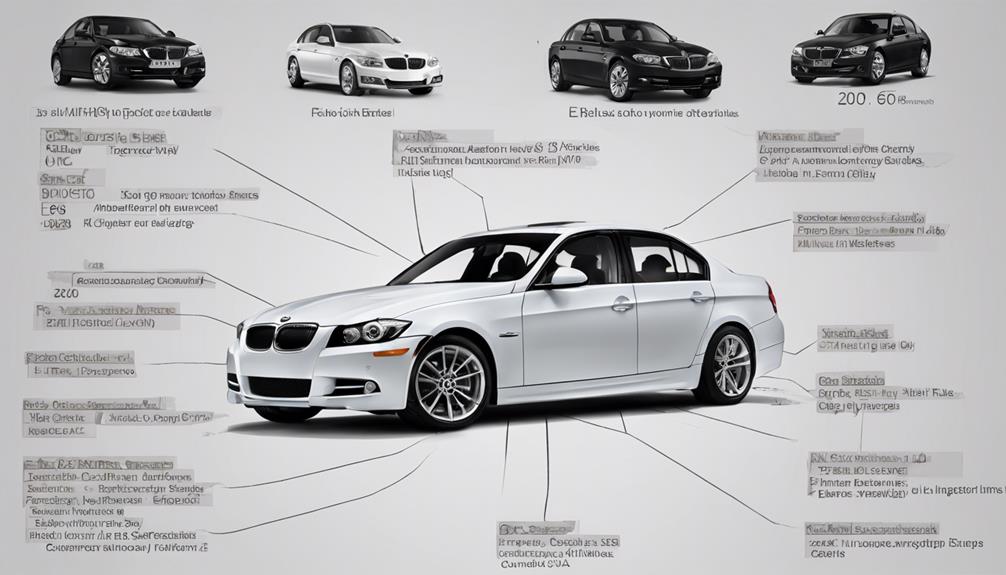
The 2013 E90 model stands out for its reputation as one of the most reliable vehicles in its class, backed by the dependable N52 engine. While some minor issues may arise, overall, owners express high satisfaction with the 2013 E90's durability and performance.
Regular maintenance is key to ensuring the longevity and trouble-free operation of this model.
2013 E90 Reliability
Considered one of the most reliable years for the E90, the 2013 model stands out for its matured design and refined engineering. Owners of the 2013 E90 praise its reliability, citing minimal issues and dependable performance. The 2013 E90 is known for its durable N52 engine, which has a track record of reliability and longevity. This model year boasts high customer satisfaction ratings and low maintenance costs, contributing to its reputation for reliability. Overall, the 2013 E90 is a top choice for those seeking a reliable and well-rounded luxury sedan experience.
- Owners praise the 2013 E90 for its reliability and dependable performance.
- The durable N52 engine in the 2013 model has a track record of reliability and longevity.
- High customer satisfaction ratings and low maintenance costs make the 2013 E90 a popular choice.
Common Issues Identified
Notable common issues identified in the 2013 E90 model include oil leaks, valve cover gasket failures, and steering column lock problems. Despite these challenges, the N52 engine in the 2013 E90 is generally reliable and dependable. Owners have reported minimal major issues, highlighting the model's overall reliability. The maintenance costs for the 2013 E90 are noticeably low, making it an attractive option for those seeking a reliable BMW 3 Series. Below is a breakdown of the common issues identified in the 2013 E90:
| Common Issues | 2013 E90 Model |
|---|---|
| Oil Leaks | X |
| Valve Cover Gasket Failures | X |
| Steering Column Lock Problems | X |
Maintenance Recommendations
For peak performance and longevity of your 2013 E90 model, consistent maintenance is essential, including oil changes, spark plug replacements, and fluid checks. Here are some key maintenance recommendations to keep your vehicle running smoothly:
- Oil Changes: Regular oil changes are crucial to keep the engine lubricated and running efficiently.
- Spark Plug Replacements: Changing spark plugs at the recommended intervals guarantees proper ignition and fuel efficiency.
- Fluid Checks: Regularly checking and topping up essential fluids such as coolant, brake fluid, and transmission fluid helps prevent engine damage and maintains overall functionality.
Frequently Asked Questions
What Years to Avoid E90?
To avoid potential issues with your E90, steer clear of 2006-2008 models due to ticking valve lifters and ABS module problems. Consider post-2009 versions for fewer reported issues. Get a trusted mechanic's inspection before purchasing for peace of mind.
What Year Is the Most Reliable BMW 3 Series?
For the most reliable BMW 3 Series, consider the E90 models from 2009 onwards. They boast improved engine design and build quality, with fewer reported issues on components like water pumps and gaskets. Opt for a well-maintained 328i for durability.
Are BMW 328i E90 Reliable?
You will find the BMW 328i E90 to be a reliable choice. The N52 engine's reputation for longevity and minimal maintenance needs, coupled with solid build quality and smooth performance, make it a favorite among owners.
Is E46 or E90 More Reliable?
When comparing the E46 and E90, you'll find the E90 is generally more reliable. It boasts improved longevity and maintenance costs, making it a wise choice for long-term ownership. Its modern features add to its appeal.
Conclusion
Overall, the 2008 E90 model stands out as the most reliable year in regards to durability and performance. While each subsequent year had its own strengths and weaknesses, the 2008 model consistently earned praise for its longevity and low maintenance costs.
However, it's important to ponder individual experiences and maintenance history when determining the most reliable year for the E90 series.





